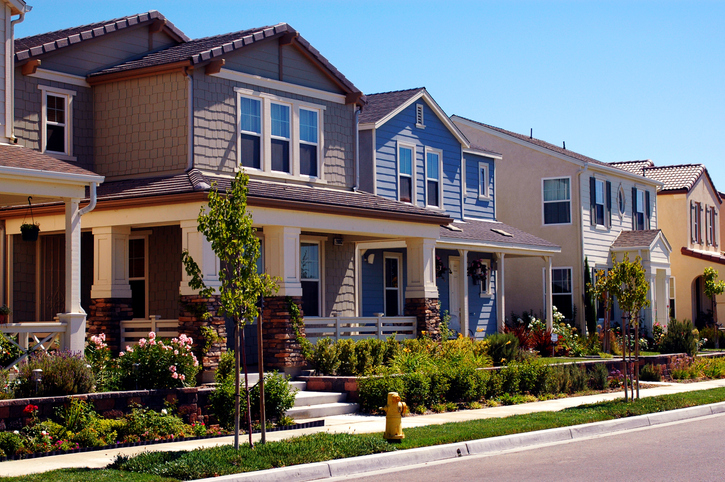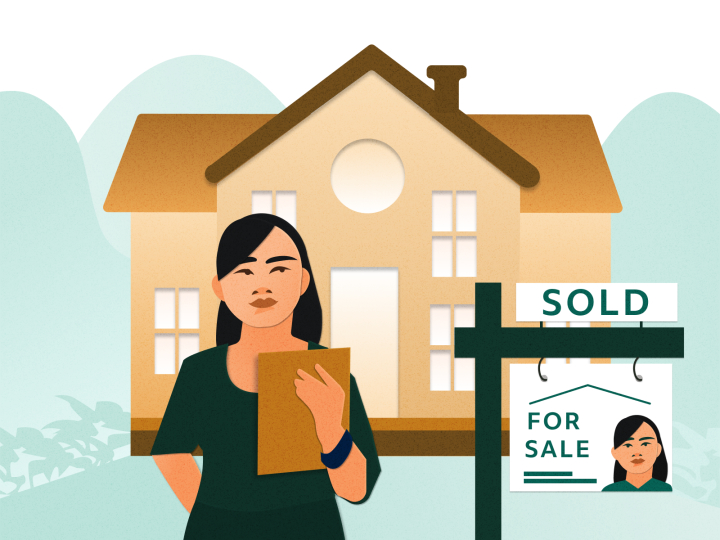The Future of Realty: Patterns and Opportunities to Enjoy
As the realty landscape evolves, it becomes progressively important to comprehend the arising patterns and chances that will certainly specify the sector in the coming years. Technological innovations are improving transactional processes, while an expanding concentrate on sustainability reflects transforming customer concerns. In addition, group changes and the increase of remote job are influencing real estate choices, particularly in rural locations. With these characteristics at play, a more detailed assessment of the approaches and adjustments required for success reveals intriguing possibilities that might reshape investment approaches and market actions.
Technical Technologies in Real Estate
In recent years, the genuine estate market has actually accepted a wave of technical innovations that are changing typical practices. One of the most significant innovations is the increase of huge data analytics, which enables actual estate experts to examine market trends, anticipate property worths, and determine investment opportunities with unprecedented precision.
Additionally, digital reality (VR) and enhanced reality (AR) technologies are changing residential or commercial property advertising and marketing by offering immersive experiences for possible buyers and lessees. These tools enable clients to carry out online scenic tours of homes, thus improving the search process and improving customer involvement. Moreover, blockchain modern technology is getting grip as a way to safeguard transactions and keep clear documents, thereby lessening scams and quickening the closing procedure.
Smart home innovations are also ending up being increasingly prevalent, making it possible for homeowners to keep track of and regulate their properties remotely (Real Estate Lockhart). Jointly, these technological technologies are improving the landscape of property, cultivating a much more reliable, transparent, and customer-centric market
Need for Lasting Residences
As consumers increasingly prioritize ecological responsibility, the demand for lasting residential properties has risen in the actual estate market. This change reflects a wider social pattern toward sustainability, with buyers and financiers seeking buildings that lessen ecological influence while taking full advantage of power performance. Attributes such as photovoltaic panels, energy-efficient appliances, and sustainable structure products are now considered as essential as opposed to optional.

In addition, the increase of green communities, which prioritize walkability and accessibility to public transport, even more stresses this pattern. These advancements appeal to ecologically conscious customers and promote a healthier way of living.
As the demand for lasting properties remains to climb, market stakeholders must adjust to these expectations. By prioritizing and welcoming innovative methods sustainability, the property market can not only satisfy consumer need however likewise add to an extra lasting future.
Changing Purchaser Demographics

In addition, the maturing population is improving need for real estate. Infant boomers are seeking downsized residences that provide ease of access and reduced upkeep, often favoring urban setups with nearby facilities. This shift necessitates a focus on multi-generational real estate options that suit varying requirements.
Furthermore, cultural diversity is playing a critical duty in real estate fads. As these market changes continue to progress, actual estate experts must adapt their approaches to address the demands of these varied buyers (Real Estate Lockhart).
Increase of Remote Work Impact
Progressively, the rise of remote work is changing the realty landscape, motivating significant shifts in buyer preferences and location choices. As workers delight in the flexibility of functioning from home, many are reviewing their domestic demands, leading to a surge sought after for buildings in country and rural locations. This pattern is largely driven by the need for even more large living atmospheres that can fit home workplaces and a better lifestyle.
Furthermore, urban centers, once the focal point for purchasers, are experiencing a progressive decrease sought after as individuals focus on cost and access to nature. Actual estate designers and investors are shifting their emphasis towards residential or commercial properties that offer home office areas, outdoor amenities, and closeness to crucial services.
This developing landscape demands a reevaluation of traditional market techniques. Property specialists should adapt to the changing choices of purchasers, highlighting the importance of way of living consider their advertising techniques. In addition, contractors are progressively prioritizing adaptable layout that cater to the twin requirements of living and working, ensuring that they continue to be affordable in a swiftly altering market. The implications of remote service property are extensive, forming future fads and possibilities.
Investment Opportunities in Emerging Markets
Investment opportunities in arising markets are constantly attracting focus from actual estate capitalists looking for diversification and development potential. These markets, characterized by quick my explanation economic advancement, enhancing urbanization, and an expanding middle class, existing special prospects for wise investors. Countries in Southeast Asia, Africa, and Latin America are experiencing considerable facilities improvements and desirable government policies, which further boost their allure.
Realty read this markets such as domestic, commercial, and logistics are experiencing enhanced need as a result of urban migration and evolving consumer preferences. Significantly, cities like Ho Chi Minh City, Nairobi, and Medellín are coming to be hotspots for financial investment as a result of their broadening economic climates and youthful demographics.
Investors should perform extensive market analyses to determine essential fads, such as changes in population characteristics and economic stability, which can influence property values. In addition, partnerships with local realty companies can promote effective entrance and navigation in these markets.
Nonetheless, it's vital to be mindful of potential risks, consisting of political instability and governing obstacles. By considering these aspects and taking on a long-term point of view, investors can effectively profit from the lucrative chances arising in these creating areas.

Verdict
In conclusion, the future of actual estate will certainly be significantly influenced by technical improvements, an expanding focus on sustainability, and advancing buyer demographics. Navigating this transforming landscape will certainly call for critical partnerships and a keen understanding of market dynamics to exploit on the trends forming the industry.
As the actual estate landscape develops, it ends up being progressively important to recognize the arising trends and chances that will certainly specify the sector in the coming years. One of the most significant advancements is the increase of large information analytics, visit here which permits genuine estate specialists to evaluate market fads, anticipate property values, and determine investment opportunities with extraordinary precision.As consumers significantly focus on environmental obligation, the need for lasting residential or commercial properties has actually risen in the actual estate market. The ramifications of remote job on real estate are profound, forming future patterns and opportunities.
Investment possibilities in emerging markets are constantly drawing in attention from real estate investors looking for diversification and growth possibility.